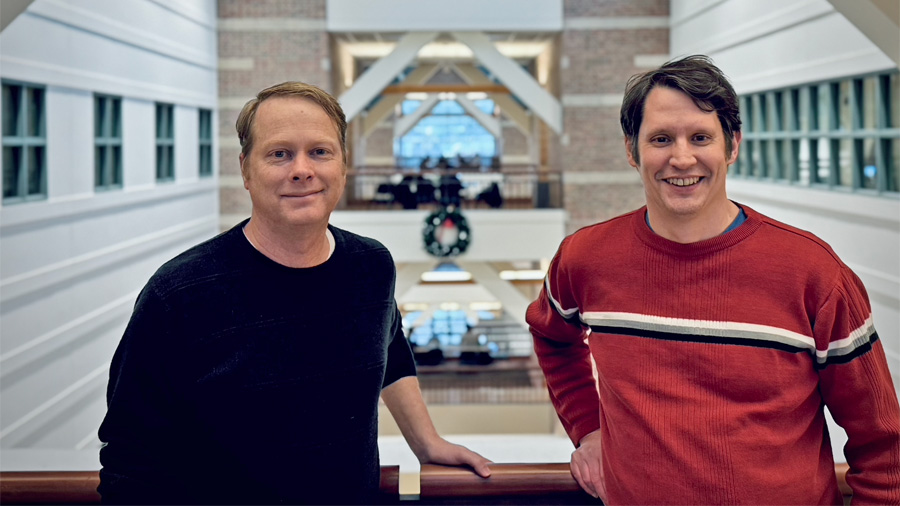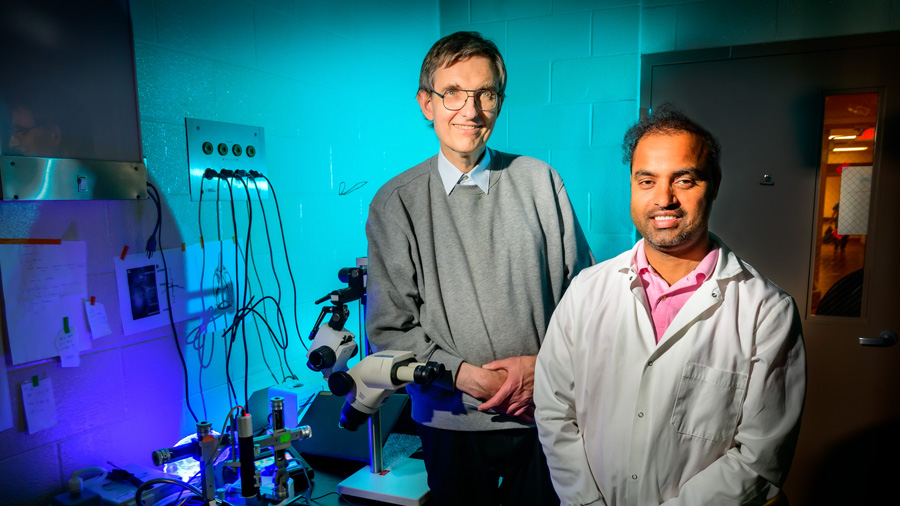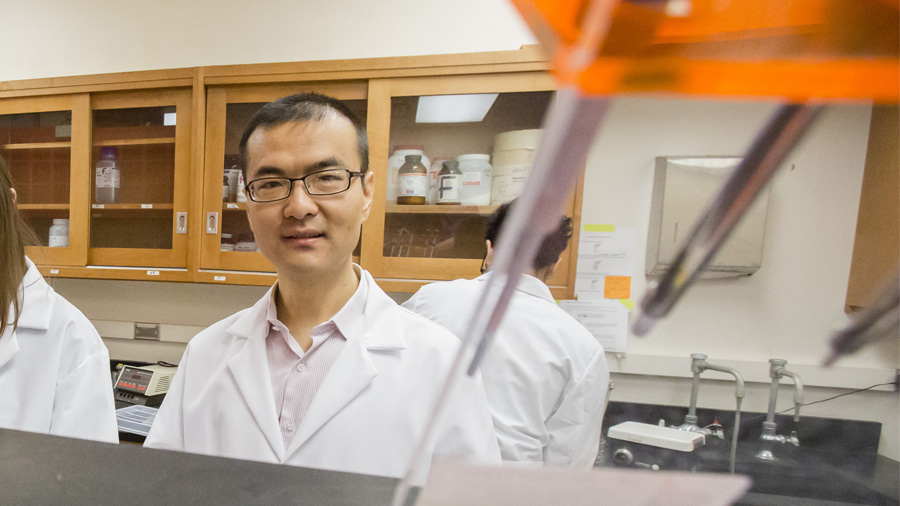What is your academic background? (Where did you get your undergraduate/other degrees?)
I graduated from the University of Massachusetts Amherst 201 with a BS in Chemistry and a BA in Philosophy. I received my DVM in 2017 from Tufts Cummings School of Veterinary Medicine and earned my MS in Veterinary Clinical Medicine from the University of Illinois in 2021.
Who is your PI?
My PI is Annette McCoy, DVM, MS, PhD, DACVS. Dr. McCoy is an Associate Professor of Equine Surgery in the Department of Veterinary Clinic Medicine.
Why did you choose a lab in the CB department for graduate school?
As an equine veterinarian, I have an ongoing interest in gastrointestinal diseases of horses and am pursuing advanced graduate studies in addition to specialty training in equine surgery. I have a diverse background of research experience, ranging from benchtop experiments in analytical chemistry to experimental clinical research examining the effects of gastroprotectants on the development of ulcers. By continuing my graduate studies in the CB department, I hope to gain a strong foundation in cutting-edge biomedical research techniques that will complement my clinical training in surgery as I pursue my long-term goal to fulfill the role of a clinician-scientist in an academic setting.

Describe your current research project.
My overarching research goal is to use high-throughput technologies such as shotgun proteomics, metabolomics and microbial profiling to elucidate molecular mechanisms of gastrointestinal disease and identify novel diagnostic markers and/or therapeutic targets. My current projects include description of the gastric microbiome in healthy horses, validation of ELISA tests to quantify fecal inflammatory biomarkers, and comparison of the peritoneal fluid proteome in horses with different intestinal diseases.
What impact do you think your research could have on society?
Through my planned research program during my doctoral studies and beyond, I hope to identify ways in which we can better diagnose and treat horses with gastrointestinal disease. It is my hope that the findings of my research will also translate to other species and may advance treatments for similar conditions in humans and other animals.

What are your passions outside of research?
When not working on research or in the veterinary clinic, I enjoy spending time with my husband, horse, and two cats. Getting outside helps me to recharge, whether I am horseback riding, hiking, or working in my garden. When I can’t be outside, I like to bring the outdoors in, and have developed a rather large house plant collection in my office at the VTH.




